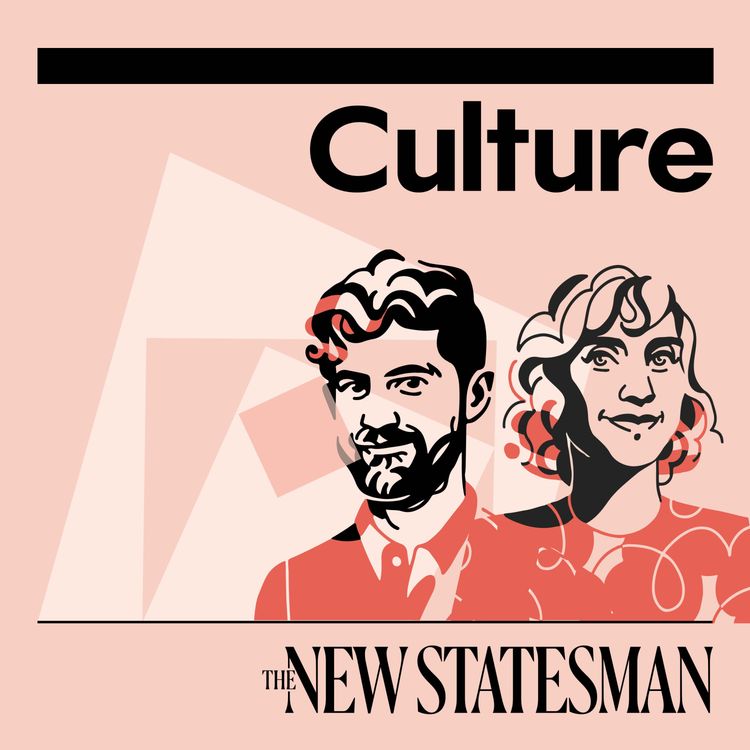Share

Daily Politics from the New Statesman
How The Beatles' love story shaped the 20th Century
A fateful meeting at a village fête "tilted" the 20th Century "on its axis"
So argues Ian Leslie in his new book, John and Paul: A Love Story in Songs.
In the book, Leslie argues that The Beatles didn't just dominate pop culture - they redefined how we see ourselves.
He reframes the relationship between John Lennon and Paul McCartney as a kind of love story, which shaped the second half of the 20th Century and continues to influence us today.
Leslie joins Kate Mossman on Culture from the New Statesman to discuss the book, The Beatles and their legacy.
John & Paul: A Love Story in Songs is available from March 27 in book shops and online. Pre-order it here*
The author Deborah Levy has reviewed the book for New Statesman. Her review is available to read online now, and will appear in the March 20 issue of the New Statesman magazine.
Get full access to all the New Statesman's cultural reviews - as well as our leading politics and global affairs reporting - by becoming a subscriber from just £8.99 per month. Visit www.newstatesman.com/offer.
Get the best of the New Statesman direct to your inbox every weekend for FREE by signing up to our newsletter, The Saturday Read. Visit saturdayread.substack.com.
*Purchasing a book may earn the New Statesman a commission from Bookshop.org, who support independent bookshops.
SAVE £££ THIS CHRISTMAS:
⭐️ Gift big ideas, bold politics, and proper journalism from just £2
LISTEN AD-FREE:
📱Download the New Statesman app
MORE FROM THE NEW STATESMAN:
❓ Ask a question – we answer them every Friday
⏰ Get our daily politics newsletter every morning
✍️ Enjoy the best of our writing via email every Saturday
More episodes
View all episodes

What if Russia wins?
35:41|It has been four years since Russia’s full-scale invasion of Ukraine. The war has settled into a grinding and uncertain stalemate.Despite proving remarkably resilient, Ukraine, and the rest of the world, must face the question: What if Russia wins?Katie Stallard explores this urgent question with German political scientist, Professor Carlo Masala.
Labour Together’s attack on press freedom
27:45|Why has Keir Starmer ordered an investigation into Labour Together? What the hell is going on with our local elections? And what are we meant to make of Reform UK’s new “shadow cabinet”?You asked, we’ll answer. Anoosh Chakelian is joined by Rachel Cunliffe for the listener questions episode of Daily Politics from the New Statesman.📚 READ: https://www.newstatesman.com/politics/uk-politics/2026/02/dismay-as-no-10-works-with-brendan-cox-after-misconduct-claims
Rutger Bregman “This Trump phenomenon really is fascism”
22:04|This week we launched another, that’s right ANOTHER, podcast. The Exchange is the New Statesman’s long-form interviews show, featuring some big names you know, and some big names you’ll be glad to learn of.Listen on: Spotify and Apple
Andrew arrested
28:20|The King’s brother, Andrew Mountbatten-Windsor, has been arrested.The alleged offence: misconduct in public office. The arrest came after claims Andrew allegedly shared official documents during his time as UK Trade Envoy, with two emails in particular showing up in the latest Epstein files – although police haven’t yet released the specifics of their investigation.Police have searched Andrew’s homes, and at the time of recording the former Prince is in custody. He’s not yet been charged, and has previously – strenuously – denied any wrongdoing on these matters related to Epstein. The King has said “the law must take its course”. Oli Dugmore is joined by Will Lloyd in the studio.
Is Bridget Phillipson really the most dangerous woman in Britain?
36:02|From “Nazi” to “Marxist” Bridget Phillipson, the education secretary, has faced intense criticism from all sides.But how exactly is she trying to reform the British education system? For the cover of this week’s New Statesman magazine, our executive editor Pippa Bailey has written an extended profile of Phillipson - exploring what motivates the education secretary, and how consequential the next few months could be for her - and the Labour Party.She joins Oli Dugmore in the studio.📚 READ: https://www.newstatesman.com/cover-story/2026/02/is-bridget-phillipson-the-most-dangerous-woman-in-britain
Has Starmer killed Welsh Labour?
27:29|Eluned Morgan, the first minister of Wales speaks to Megan Kenyon about her relationship with Keir Starmer, Welsh Labour’s prospects in the upcoming Senedd election and the threat of Plaid Cymru and Reform.
Should we ban social media for under-16s?
32:05|Will Keir Starmer ban kids from social media?Subscribe on YouTube: https://www.youtube.com/channel/UC2DHAQOeEg-Z-4trARDXHRA?sub_confirmation=1The PM has promised a crackdown on social media and said he’s “open-minded” to a full on, Australia-style ban for under 16s. Oli Dugmore is joined by senior editor George Eaton.
The Labour Party's "unpopularity contest"
33:23|Labour’s unpopularity contest, the joys of figure skating and bonkers advice from RFK Jr's nutrition chatbot.Anoosh Chakelian and Will Dunn explore the most ludicrous and laughable stories of the week.Including calls for Britain to set up a “Ministry of Sex”...
£100k salary, feeling poor – is tax killing ambition?
24:24|A listener paying 67% in tax asks if Labour are destroying UK productivity. From the new and improved New Statesman podcast studio, Anoosh and Rachel answer listener questions on tax, student loans and Nigel Farage MP's second (and third, and fourth) jobs.In the mailbag this week:A listener earning over £100,000 writes in to ask why the government is failing to address the "tax trap" that means high-earning parents are "penalised".Would the British public back student loan forgiveness?And why can Nigel Farage and other parliamentarians present TV shows, run consultancies, and earn money on the side of their MP job?